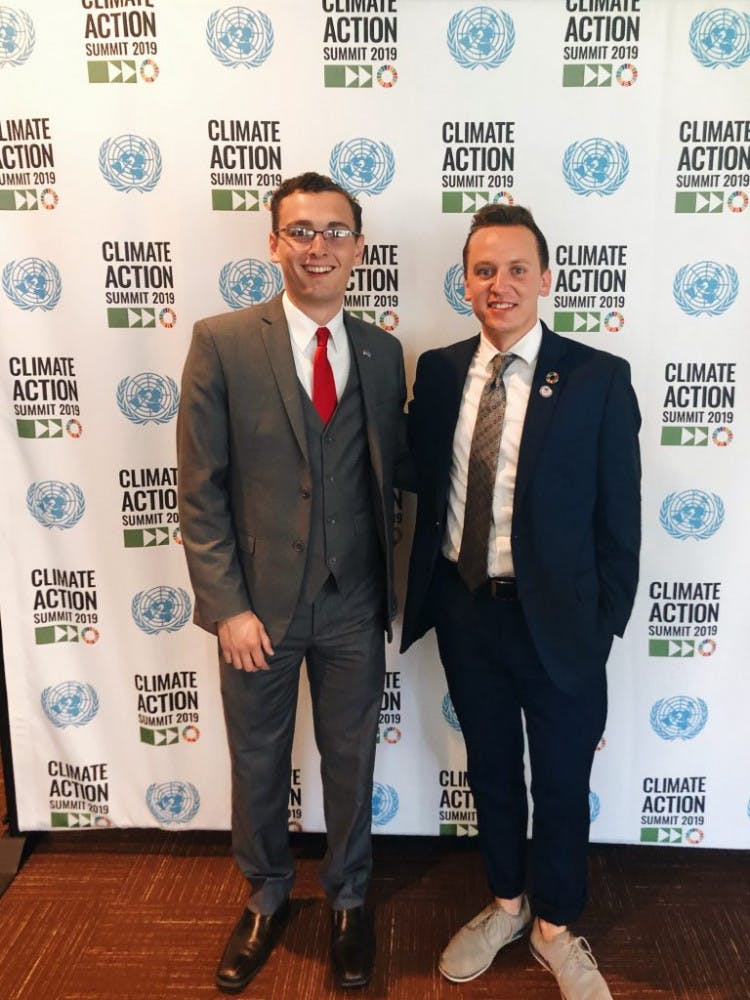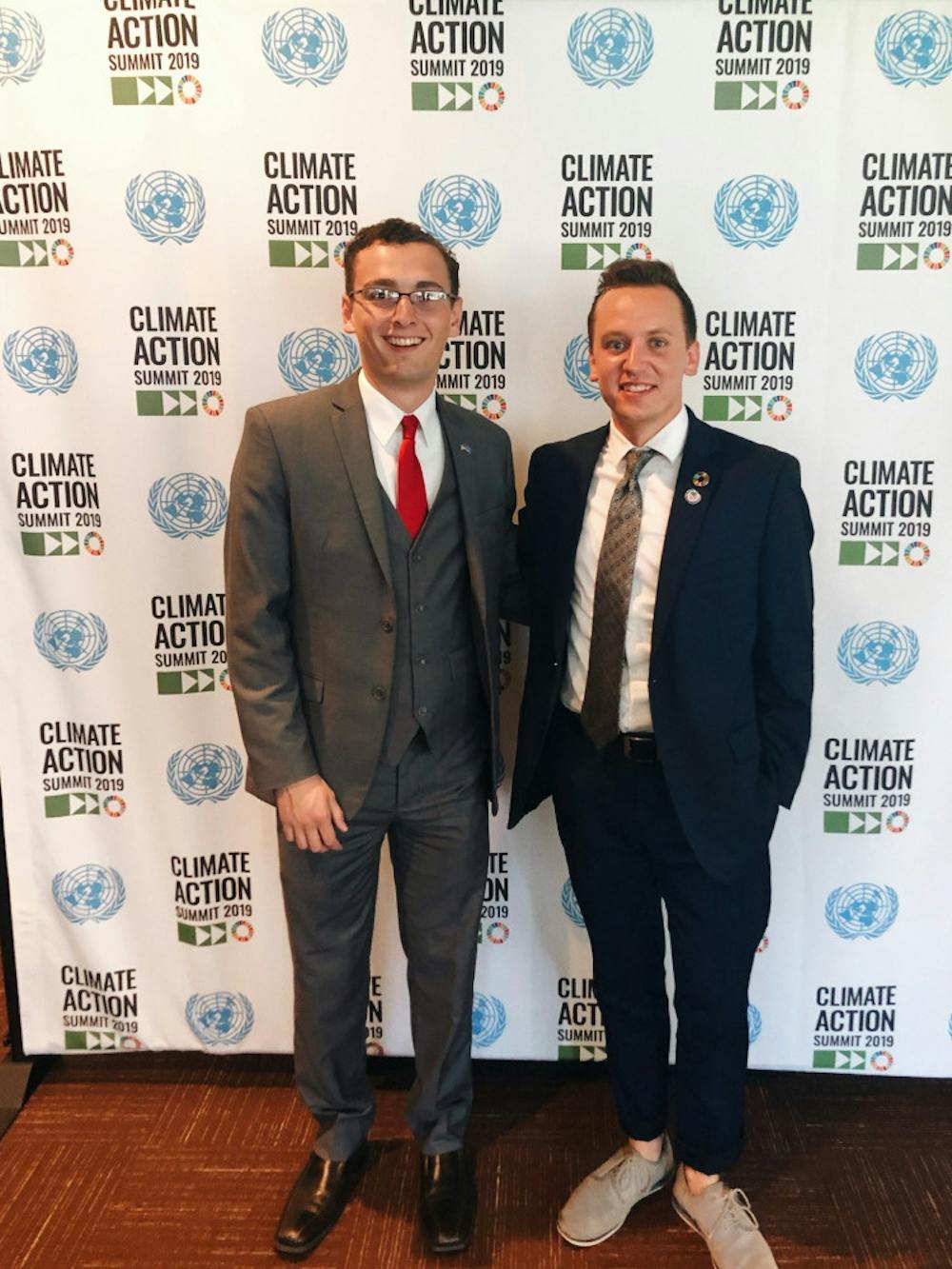On Sept. 21, the United Nations hosted the first Youth Climate Summit, featuring climate activists and world leaders to discuss the ways that countries could reduce emissions and find eco-friendly solutions without harming their country. Diplomacy majors who attended the summit shared their experience with The Setonian.
Jacob Abel, a senior diplomacy major, attended the Summit. “I got the opportunity to attend the summit after being invited by The United Nations Association of the United States of America,” Abel said. “This was in part because of my involvement with two outside organizations called RepublicEn. org and Citizens Climate Lobby.” Abel explained his work to combat climate change with the organizations he’s involved in both on and off campus.
“I spent the last three years heavily involved in the Student Government Association,” Abel said. “Currently I am not that heavily involved in on campus organizations, but I am very active in two outside organizations called RepublicEn. org and Citizens Climate Lobby. Both advocate for putting a price on CO2 emissions that is revenue neutral meaning the government doesn’t keep any of the money.”

LaCourse and Abel attended the U.N.’s first Youth Climate Summit on Sept. 21.
Abel noted that the summit allowed for people from all sides and backgrounds to engage and address climate change.
“Being a Republican myself, I think it’s important to show that there are Republicans who want to address climate change and who have serious policies to do so,” Abel said. “I always like to say if you are not at the table talking about solutions then you can’t be mad when something comes up that you don’t like.
Abel said he was disappointed in the Summit. However, he praised the increase of media attention towards the youth.
“It had been hyped up to be a very big event, but it had a similar layout and feeling to past summits on other issues,” Abel said. “I would say may favorite presentation was seeing young entrepreneurs present their ideas to business leaders from companies such as Nike and Google. I think entrepreneurship will be key to solving climate change and this was an example of that.”
The U.N. Youth Summit was accompanied by the Global Climate Strike, a day where people protested the lack of action taken by world leaders in the realm of climate change.
Parker LaCourse, a senior diplomacy major, also attended the summit as one of five delegates from the United Nations Association of the United States. “I was disappointed,” LaCourse said in an email. “The Summit was designed to support and elevate youth voices leading the fight against the climate crisis, but there was no dialogue for the youth to engage in. Youth were invited to do little more than listen to industry professionals, only reaffirming the status quo.”
LaCourse interned with UNAUSA over the summer in Washington, D.C. and worked with its campus chapter network. He said as part of this internship, he helped design a virtual fellowship for youth members centering around the climate crisis and climate action.
LaCourse added, “The U.N. celebrated youth involvement in the fight against climate change, but this is not a fight that any of us want to be facing. We don’t want to be celebrated. We don’t want to be the leaders combatting the climate crisis. We don’t want world leaders turning solely to our generation for change.
“And we don’t want business as usual. We want real action. We want innovate technologies. We want radical policy changes. But we’ve been given no choice.”
LaCourse noted that the University has its own UNA-USA campus chapter that gives students an outlet to advocate for critical global issues and the U.N. He said this semester, the club is focusing on climate action and brought a handful of students to the Global Climate Strike in New York City.
“We are working to generate more public awareness around the climate crisis,” he said. “We’re raising funds for nonprofits working on reforestation projects in the Amazon. We’re also hosting a youth climate activist panel later this month.”
In addition, LaCourse said the University also has an organization like the Environmental Protection and Conservation Commission, “working to make real changes on our campus to make a real shift towards sustainable models of consumption and reducing waste.”
Zach Schullian, a freshman diplomacy major, said his favorite part of the march was seeing the passion of everyone who was involved, all united behind a cause that mattered.
Chase Cohen, a freshman Diplomacy and International Relations major, explained her biggest takeaways from the march.
Cohen said, “Change is inevitable, and children are our future. They are the ones that are rallying together and organizing and working to make the world a better place.”
Alexander Krukar can be reached at alexander.krukar@student.shu. edu.





